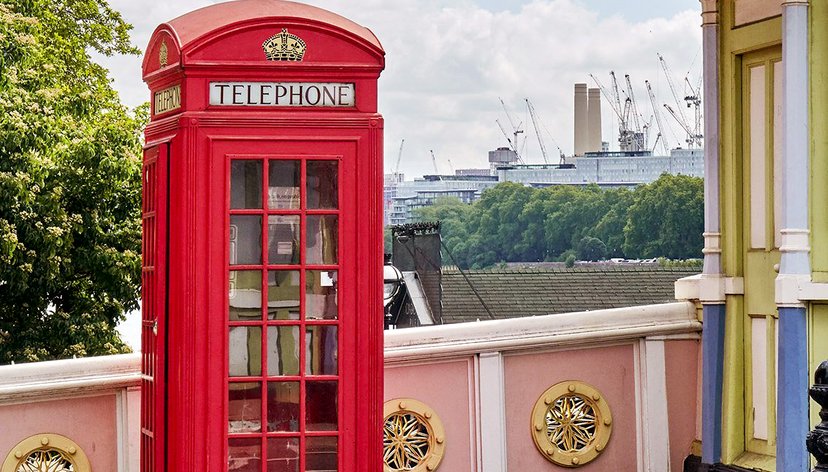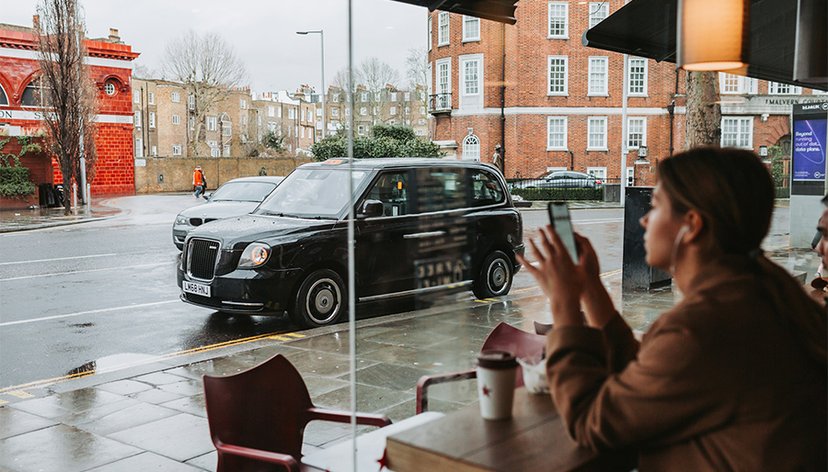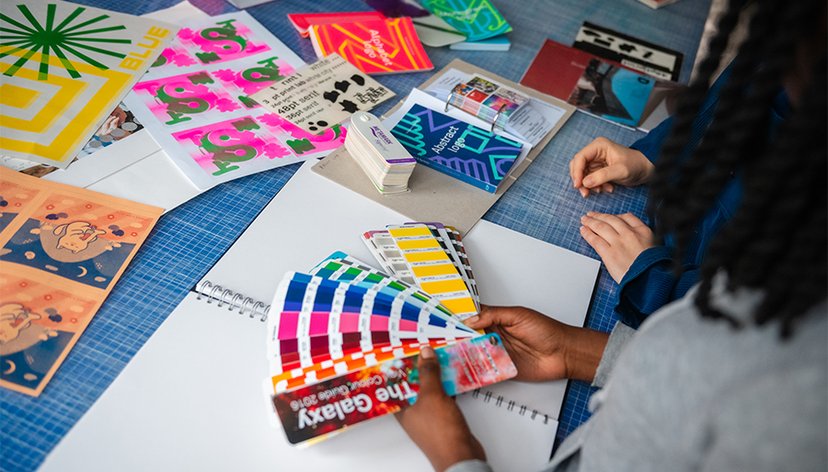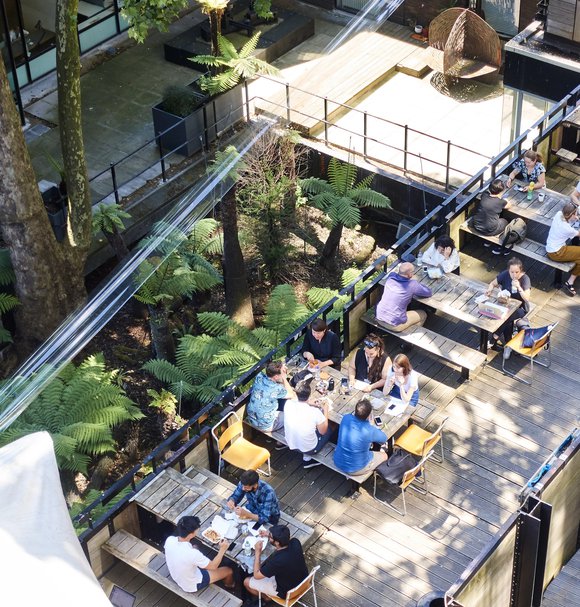Living in London
Studying at the RCA places you at the heart of a city internationally renowned for its creativity, culture and diversity. Here’s our guide to living in London – the world’s number one student city (QS Best Student Cities 2025).
Culture
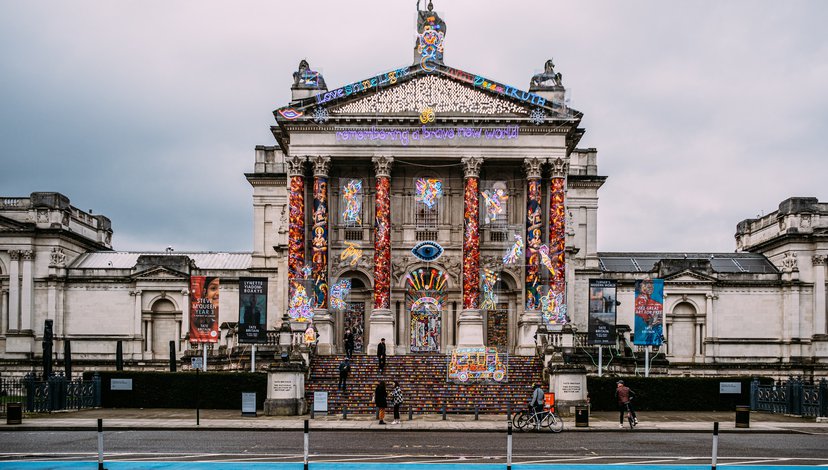
Tate Britain
Home to established galleries, independents and pop-up art spaces, there’s no lack of creative inspiration when it comes to living in London, and many museums and galleries offer discounted entry for students.
RCA students are eligible for National Art Fund’s Student Art Pass, which gets you 50% off entry to major exhibitions – including at Tate Britain and Modern, the Science Museum, Design Museum and Barbican. For those who want to explore further, the Art Pass also gives holders free entry to hundreds of museums, galleries and historic houses across the UK. The Royal Academy of Arts also offers free exhibition tickets for students studying visual arts, history of art, architecture and applied arts – you just need to show your student ID.
“There is so much creativity. There are so many [fashion] brands you haven’t heard of before, you see more presentations popping up everywhere. London is incredible... creatively, I think there’s no other place I would like to be.”
Director, LUEDER

All Points East Festival
As well as visual culture, London is famed for its live music scene and is home to a wide range of iconic, genre-spanning venues like the Roundhouse, Alexandra Palace and the Royal Albert Hall, as well as festivals such as All Points East, Field Day and Cross the Tracks. London Ears is a great resource for popular gig and concert listings, while The Bishopsgate Institute runs a series of free classical concerts every lunchtime.
Whether you want to catch some theatre or take in a drag show, nightlife in London caters to all tastes. Time Out London is your go-to for listings and publishes a weekly round-up of club nights and events. Free yearly events like Notting Hill Carnival (which takes place every August bank holiday weekend) and Pride (a month-long celebration leading up to the iconic Pride in London parade in July) exemplify the city’s rich and diverse cultural tapestry.
Opportunities

Work by feyfey Yufei Liu (MA Fashion Womenswear, 2021) showcased on the London Underground
London is the perfect city to develop your creative career in. RCA students enjoy opportunities to collaborate with industry, volunteer with local communities and display their work at some of London’s most prestigious exhibition spaces.
Students from the School of Design have a long history of showing work at the London Design Festival, while students from across the School of Arts & Humanities have had work exhibited at Saatchi Gallery as part of the gallery’s endeavour to showcase London’s emerging art scene in their London Grads Now show.

London Grads Now.21 at Saatchi Gallery
As the creative capital of the UK, London is ripe with opportunities for employment post-study and RCA students have gone on to work in an impressive variety of roles in the city and beyond.
While studying at the RCA, you’ll also encounter opportunities to work with local communities and collaborate with peers, and many RCA students attest to the lifelong connections they make at the College.

Adalberto Lonardi (MA Interior Design, 2020) volunteering with Katherine Low Settlement – a community charity in Battersea and Wandsworth
“London to me is a city where everything is possible. It provided me the opportunity to be exposed to a truly multicultural and open environment. Through the RCA Community Engagement programme, I volunteered at Katherine Low Settlement centre to start making a positive impact in the community around me. This experience profoundly shaped my studies and my way of creating art and design today.”
MA Interior Design, 2020
London provides a great base to continue your practice after graduating. For international students, a graduate (post-study) work visa enables you to stay in the UK for two years after graduation. Start-up visas and global talent visas also offer other routes to stay in the UK. You can find out more about each visa and eligibility requirements here.
Green spaces

Battersea Park
London is one of the greenest cities in the world for its size – housing nearly as many trees (8.3 million) as it does people (8.9 million).
The city's green spaces are a great way to explore its different neighbourhoods – from London Fields and nearby Broadway Market in Hackney, to wild swimming in Hampstead Heath or the tranquillity of Holland Park’s Japanese-inspired Kyoto Garden. At the RCA, two of the city’s flagship green spaces – Battersea Park with its riverside promenade and the iconic Hyde Park – are right on your doorstep.
“We have a saying ‘London is a village,’ because we’re always bumping into someone we know. It’s actually more like a series of villages with every neighbourhood having a totally different vibe. The RCA is a microcosm of London, with each department feeling like its own village; Textiles being the Columbia Road of the RCA, and Architecture the South Bank. The communities within each department feel akin to the overall diversity of London too.”

Richmond Park
If you want to venture further afield but not stray too far from the city, you can spot wild deer in Richmond Park, or be transported to other parts of the world through Kew Gardens’ botanical collection. London is also a great base for exploring the rest of the UK and Europe, with rail links to Edinburgh and Paris, and short flights to the wider continent.
Travel
London’s underground network, or ‘the tube’ as it is also known, is world famous – but there’s more to travel in London than just the tube.
The RCA campuses are well-served by buses, which are one of the most affordable ways to get around. Many students choose to cycle as another affordable alternative. Walking is not only good for your physical and mental health, but sometimes the quickest way to get to places and a great way to slow down and get to know London.
For everything you need to know about getting to our campuses, head to our Visiting the RCA page.
Keep reading below to find out more about travel in London.
Transport for London (TfL)

Transport for London, or TfL, is the local government body responsible for the public transport network in London. As well as the tube, they oversee buses, overground trains, taxis, trams, cycle hire and river boats. Their website provides information on these services, including route maps, information on fares, updates on disruptions and a journey planner.
Other ways to plan journeys include using apps such as City Mapper or Google Maps which can provide information on the best routes via public transport, walking or using taxis.
TfL Payment
Most people in London pay by contactless debit or credit card. You can also use an Oyster card, which can help you take advantage of specific discounts. Find out more ordering or collecting an Oyster card on the TfL website.
Zoning
The city is divided into six zones and journey prices on London Underground depend on how many zones you travel through. The RCA is located in Zone 1, in the centre of London. To see a map of the underground showing different zones and for information regarding all methods of transport in London, visit the TfL website.
Travelling at night

Not all TfL services run 24 hours a day. Most underground and overground services stop around midnight. Details of the last tube can be found on the TfL website. There are some ‘night tubes’ at weekends. The Central, Jubilee, Northern, Piccadilly and Victoria lines run throughout Friday and Saturday night. Buses run all night, although some routes or timetables might be different.
Check TfL or a travel app for details and plan your journey home at the beginning of the night.
Taxis

London is famous for its black cabs. These can be stopped and hired on the street when their orange ‘Taxi’ sign is lit up. Journey costs vary depending on the time of day and the length of your journey. You will not know the final fare until the end of your journey, and they can be expensive, particularly if you get stuck in traffic. Details on fares can be found here.
Private hire vehicles, such as minicabs, are also available. These must be pre-booked through a TfL-licensed private hire operator, who must provide a booking confirmation to a passenger before their journey starts.
To book a minicab or black cab in advance, use TfL's Cabwise service or text CAB to 60835 to get numbers of three local cab offices. Uber and other ride hailing apps such as Bolt, or Gett, offer a way to book minicabs or black cabs and compare prices.
Make sure you only ever get into a minicab that you have pre-booked with a licensed cab firm. Other drivers may be unlicensed and uninsured.
More information about taxis in London can be found on TfL’s website.
Safety
Travelling on public transport in London is generally safe. However, if you are travelling alone at night there are precautions you can take, like avoiding empty tube carriages and sitting in view of the bus driver on quiet buses. The Metropolitan Police, London’s police force, offer some tips on personal safety while travelling here.
Cycling in London
Cycling can be a great way to save money on transport costs, discover new parts of London and get some exercise. Many of London’s roads have dedicated cycle lanes and TfL have produced maps and routes which are cycle friendly.
When cycling on London’s roads it is important to wear a helmet, use bicycle lights after dark and wear reflective clothing to make you more visible. You can read TfL’s cycle safety advice here.
TfL also runs free cycle skills courses. This training is available for all abilities. Find out more on their website.
There are numerous on-street cycle hire schemes in London, including e-bikes. These include Santander Cycles (run by TfL), Lime, HumanForest, Dott and Tier. These schemes are accessed through apps and bikes are hired for the time they are used.
The College has cycle parking at Battersea, Kensington and White City (cycles are left at the owner's risk). If you are using your own bike you will need a secure bike lock to keep it safe whenever you park it.
Information about where to find TfL cycles near to the College can be found here.
Travel outside of London

The UK’s major towns and cities are well connected to London by rail. Train tickets can be bought in advance, or on the day of travel, from any railway station.
You can also search for routes and buy tickets online. Buying tickets in advance online can often be cheaper. You can use the National Rail website to plan journeys, buy tickets or railcards, and get updates on live train times and any disruptions. Other website such as the Trainline, Ticketyplit or Split my fare offer ways to search for cheaper tickets, but may charge an additional booking fee.
If you are regularly travelling on national rail services, a rail card can make journeys cheaper. There are different options available depending on where you travel, who you travel with and your age. Railcards are valid for a year and offer a third off some journeys. Find out more about railcards.
Coaches provide a cheaper alternative to trains, although journeys typically take longer. You can find fares and routes through National Express or Megabus.
Accessibility
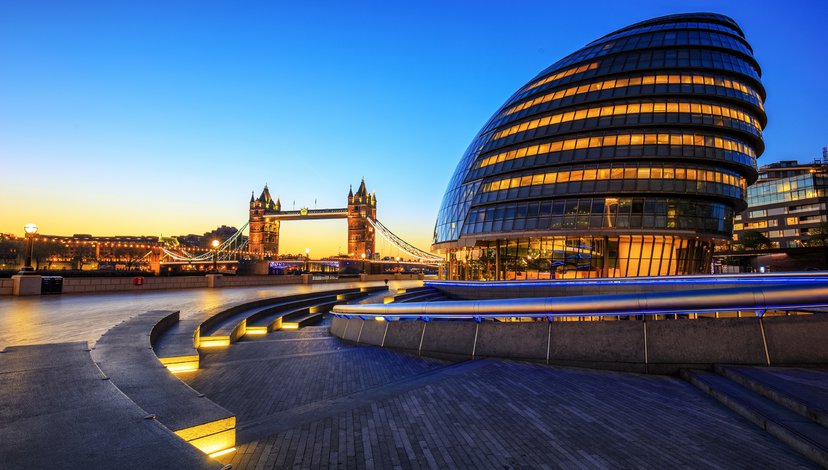
Information and advice about accessible travel on the TfL network can be found on their website. Here you will find accessibility maps, guides and journey planning as well as information about the accessibility support they offer. This includes a turn up and go service on the Tube, London Overground and Elizabeth line.
Any passenger can arrive at a station and ask staff for assistance accessing the station. TfL also offers free travel mentoring to support people using public transport in and around London to become more confident and independent travellers.
The National Rail website provides accessibility information about stations and trains. Their passenger assist service allows you to book assistance in advance online, through an app, or over the phone. This service can help you navigate stations, board trains and complete your journey.
